5th PSSI Space Security Conference
On June 9—11, 2019, in Prague, the Prague Security Studies Institute (PSSI) convened its Fifth Space Security Conference.
It focused on the rapidly advancing threats to space operations and the role of space partnerships in addressing – and, hopefully, mitigating – this higher risk environment. It examined the issue of space hybrid operations that span an increasing number of areas (including the commercial space sector), as well as the non-democratic model of space partnerships. Previous PSSI Space Security Conferences were held in Prague (in 2011 and 2016), Tokyo (in 2013) and Washington, DC (in 2017), co-organized with the European Space Policy Institute (ESPI), the European Space Agency (ESA), the Office of National Space Policy of the Japanese Prime Minister’s Cabinet Office, the Secure World Foundation (SWF) and the Center for Strategic and International Studies (CSIS).
Click for more
The topics of this year's gathering included:
-
Evolution of the Counterspace Threat
-
Space Domain Awareness and Hybrid Operations
-
Space Resilience and Risk Mitigation
-
International Space Partnerships: Competition or Collaboration?
-
Deterrence and Space Crisis Management
-
Private Sector Role in Space Security
Among some 150 attendees and speakers, there were representatives from governmental and non-governmental institutions, as well as the private sector. They included the European External Action Service, the European Space Agency (ESA), the UK Space Agency, the French Space Agency (CNES), DLR Space Administration, the French Ministry of Defence, the German Ministry of Defence, the U.S. Department of Defense, the U.S. Department of State, U.S. Department of Commerce, the U.S. Air Force Space Command, the Secure World Foundation, the European Space Policy Institute, the Institute for Defense Analysis, Mitsubishi Heavy Industries, Mitsubishi Electric Corporation, IHI Aerospace the Analytical Graphics, and others.
At the gala dinner on the first full day of the event, PSSI’s Chairman and Co-Founder, Roger W. Robinson Jr. and the Vice-Rector of the Charles University, Jan Konvalinka, jointly unveiled a new four-year Ph.D. scholarship in the field of Space Security that is awarded by PSSI. The Ph.D. scholarship is named after the Honorable William P. Clark, National Security Advisor to President Ronald Reagan, who instituted the Strategic Defense Initiative on the President’s behalf.
PSSI was delighted to hold this ceremony in the presence of leading Conference participants. Video can be viewed here or bellow.
At one of the Conference panels, PSSI also released the Executive Summary of its Report entitled “State Actor Strategies in Attracting Space Sector Partnerships: Chinese and Russian Economic and Financial (E&F) Footprints.” The document tracks and visually maps, as well as analyses space-related transactions of China and Russia globally over a number of years.
To see our previous conferences click here.
Conference videos
Remarks and Presentations
Conference speakers
-
Andrea L. Thompson, Under Secretary for Arms Control and International Security, U.S. Department of State
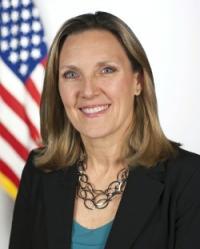
Andrea L. Thompson was confirmed as Under Secretary for Arms Control and International Security on April 26, 2018. Before her arrival at the Department of State, Under Secretary Thompson served as the Deputy Assistant to the President and National Security Advisor to the Vice President.
Prior to her tenure at the White House, Under Secretary Thompson served as the Director of the McChrystal Group Leadership Institute. She brings more than 25 years of service in the United States military to her role, including deployments on multiple combat tours, such as: Intelligence Directorate/J2 Chief of Staff in Afghanistan, Senior Intelligence Officer for Multi-National Division (North) in Iraq, as well as tours in Iraq, Bosnia, and operational and strategic deployments around the world.
Under Secretary Thompson also served as the National Security Advisor for the Chairman, U.S. House of Representatives Committee on Homeland Security and Senior Military Advisor to the Chairman, U.S. House of Representatives Foreign Affairs Committee.
She graduated with honors from the University of South Dakota (Phi Beta Kappa), and received her Masters’ Degrees from Long Island University and National Defense University. Under Secretary Thompson is the co-author of the book Achieving Victory in Iraq: Countering an Insurgency.
A native South Dakotan, Under Secretary Thompson lives in Alexandria with her family.
-
Lt Gen David D. Thompson, Vice Commander, United States Air Force Space Command

Lt. Gen. David D. Thompson is Vice Commander, Air Force Space Command, Washington, D.C. He is responsible to the commander of Air Force Space Command in carrying out Air Force space missions and integrating space policy, guidance, coordination and synchronization of space-related activities, and issue resolution for Air Force Space Command and the Department of the Air Force.
General Thompson was commissioned in 1985 as a graduate of the U.S. Air Force Academy. He is a career space officer with assignments in operations, acquisition, research and development, and academia. He has commanded operational space units at the squadron, group and wing levels. The general is also an Olmsted Scholar, graduate of the Senior Acquisition Course and Level III-Certified Program Manager. Prior to his assignment as Vice Commander, General Thompson was the Special Assistant to the Commander, Air Force Space Command, Peterson Air Force Base, Colorado.
-
Toshihiko Kasahara, Deputy Director, Cabinet Satellite Intelligence Center (CSICE), Japan
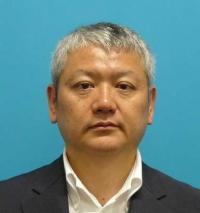
- Apr. 1984 - Entered National Police Agency
- Aug. 2008 - Director, International Affairs Division, Commissioner General’s Secretariat, NPA
- Jan. 2010 - Chief, Kagoshima Prefectural Police Headquarters
- Apr. 2012 - Director, Public Safety Division, Security Bureau, NPA
- Apr. 2013 - Chief, Okinawa Prefectural Police Headquarters
- Aug. 2014 - Defense Councilor for Cyber Security and Information Technology Management, Minister's Secretariat, Ministry of Defense
- Aug. 2016 - Director-General, Personnel and Training Bureau, Metropolitan Police Department
- Jan. 2017 - Deputy Superintendent-General, Metropolitan Police Department
- Aug. 2017 - Deputy Director, Cabinet Satellite Intelligence Center
-
Roger W. Robinson Jr, Chairman and Co-Founder, Prague Security Studies Institute

Roger W. Robinson Jr. was formerly Senior Director of International Economic Affairs at the Reagan National Security Council, where he was the principal architect of the secret economic and financial strategy for the take-down of the Soviet Union. He later served as Chairman of the Congressional U.S.-China Economic and Security Review Commission for the bulk of 2001-2006. Prior to his government service, Mr. Robinson was a Vice President in the International Department of the Chase Manhattan Bank with responsibility for Chase’s loan portfolios in the USSR, Central/Eastern Europe and Yugoslavia. He also served as a personal staff assistant to then-Chase Chairman David Rockefeller for some three years. Mr. Robinson is currently President & CEO of RWR Advisory Group, a data services and risk management firm that specializes in assessing Chinese and Russian market risks. Mr. Robinson is also Chairman and Co-Founder of the Prague Strategic Studies Institute in the Czech Republic.
-
Victoria Samson, Washington Office Director, Secure World Foundation

Ms. Victoria Samson is the Washington Office Director for the Secure World Foundation and has twenty years of experience in military space and security issues.
Before joining SWF, Ms. Samson served as a Senior Analyst for the Center for Defense Information (CDI), where she leveraged her expertise in missile defense, nuclear reductions, and space security issues to conduct in-depth analysis and media commentary. Prior to her time at CDI, Ms. Samson was the Senior Policy Associate at the Coalition to Reduce Nuclear Dangers, a consortium of arms control groups in the Washington, D.C. area, where she worked with Congressional staffers, members of the media, embassy officials, citizens, and think-tanks on issues surrounding dealing with national missile defense and nuclear weapons reductions. Before that, she was a researcher at Riverside Research Institute, where she worked on war-gaming scenarios for the Missile Defense Agency's Directorate of Intelligence.
-
Aleš Chmelař, Deputy Minister for European Affairs, Ministry of Foreign Affairs of the Czech Republic

- 3 December 2018 – to date Ministry of Foreign Affairs of the Czech Republic, Deputy Minister for European Affairs
- 2017 - 2018 Office of the Government of the Czech Republic, State Secretary for European Affairs
- 2017 Office of the Government of the Czech Republic, Director, EU Economic Policies Coordination Department
- 2014 – 2016 Office of the Government of the Czech Republic, Head, EU Strategies and Trends Unit
- 2012 – 2014 Centre for European Policy Studies (CEPS), Brussels, Researcher, European Credit Research Institute
- 2012 General Secretariat of the Council of the European Union, Brussels, Trainee, Financial Services Unit, Directorate General for Economic Affairs and Competitiveness (ECOMP)
- 2011 - 2012 Party of European Socialists (PES), Brussels, Trainee, Financial and Economic Policy Unit
-
Kai-Uwe Schrogl, Chief Strategy Officer, seconded to the German Federal Ministry for Economic Affairs and Energy, European Space Agency
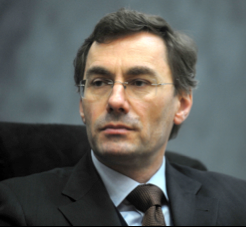
Prof. Dr. Kai-Uwe Schrogl is Chief Strategy Officer of the European Space Agency (ESA). From 2007 to 2011 he was Director of the European Space Policy Institute (ESPI) in Vienna, Austria, the leading European think tank for space policy. Previously, he was the Head of the Corporate Development and External Relations Department in the German Aerospace Center (DLR) in Cologne, Germany. He also worked with the German Ministry for Post and Telecommunications and the German Space Agency (DARA) in Bonn, Germany. He has been a delegate to numerous international fora and served from 2014 to 2016 as Chairman of the Legal Subcommittee of the United Nations Committee on the Peaceful Uses of Outer Space, the highest body for space law-making, comprising 73 Member States. He is President of the International Institute of Space Law (IISL), a professional association of space law experts from 48 countries, a member of the International Academy of Astronautics and the Russian Academy for Cosmonautics as well as Corresponding Member of the French Air and Space Academy.
-
Carine Claeys, Special Envoy for Space (acting), Space Task Force, European External Action Service (EEAS)

Carine Claeys has been acting EEAS Special Envoy for Space since September 2018 and still Head of the EEAS Space Task Force, set up in 2015. In that capacity, she advises the EEAS Secretary General on all space matters of EU interest and she chairs the Board of the EU Satellite Centre and the ad-hoc GNSS security experts group advising the EU Political and Security Committee in the framework of the Council's and High Representative's responsibilities to respond to possible threats linked to the European Global Navigation Satellite System (Galileo/Egnos).
From 2011 to 2015 she was responsible of the corporate processes coordination in the newly set-up EEAS.
Before the EEAS was established, Carine Claeys served in the General Secretariat of the Council of the European Union. She was head of the "Security of space tools" cell (Galileo, GMES – then Copernicus) in the EU Situation Centre from 2005 to 2011. She was responsible for maritime transports and for transport intermodal questions and networks in DG Transports of the General Secretariat of the Council from 2000 to 2005, after having worked in several other sectors of this administration from 1992 on (mainly energy, human rights, United Nations, drugs, terrorism, agriculture and enlargement).
Carine Claeys holds a PhD in political sciences, a Master degree in business engineering, a Master degree in international relations and a Master degree in development cooperation. -
Jana Robinson, Space Security Program Director, Prague Security Studies Institute

Dr. Jana Robinson is currently Space Security Program Director at the Prague Security Studies Institute (PSSI). She previously served as a Space Policy Officer at the European External Action Service (EEAS) in Brussels, as well as a Space Security Advisor to the Foreign Ministry of the Czech Republic. From 2009 to 2013, Ms. Robinson worked as Resident Fellow at the European Space Policy Institute (ESPI), seconded from the European Space Agency (ESA), leading the Institute’s Space Security Research Programme.
Prior to joining ESPI, Dr. Robinson served as Development Director at PSSI from 2005 to 2009, and administered its affiliate organization in Washington DC, PSSI Washington. Ms. Robinson is an elected member of the International Institute of Space Law (IISL) and the International Academy of Astronautics (IAA). She is also a member of the Advisory Board of the George C. Marshall Missile Defense Project of the Center for Strategic and International Studies (CSIS) in Washington, D.C. Ms. Robinson holds a PhD from the Charles University’s Faculty of Social Sciences, Institute of Political Studies, in the field of space security. She also holds two Master’s Degrees, from George Washington University's Elliott School of International Affairs and Palacky University in Olomouc, respectively. She received scholarships to attend the International Space University’s (ISU) 2009 Space Studies Program (SSP09), the 2008 Summer Training Course at the National Taiwan Normal University in Taipei, and a one-year course of study at Shanghai University 1999-2000.
-
John Stopher, former U.S. Deputy Assistant Secretary of Defense for Space Policy
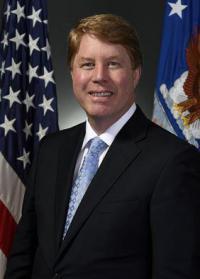
Dr. John P. Stopher is the Principal Assistant to the Secretary of the Air Force for Space, the Pentagon, Arlington, Va. In this role, he advises the SECAF, Under Secretary, and the Chief of Staff of the Air Force on all space-related matters and serves as the Headquarters Air Force official for space matters, to include planning, policy, strategy, international relations, and space interagency relations. Dr. Stopher also serves as the primary HAF interface for space matters to entities and organizations outside the Air Force to include the Office of the Secretary of Defense, Congress, and industry. He directs the Headquarters staff responsible for space policy, issue integration, and strategy, and oversees Air Force integration with the National Security Space Enterprise.
Dr. Stopher's career began in 1988 with Eastman Kodak in Rochester, New York, where he worked as a systems engineer on advanced imaging systems, including optics and image processing in the Hawkeye Works facility. Dr. Stopher worked in industry for several years as a senior engineer, then joined the U.S. House of Representatives, Permanent Select Committee on Intelligence as a professional staff member in August 1998. He began his HPSCI work as a program monitor for the National Reconnaissance Office and the National Geospatial-Intelligence Agency before becoming the Staff Director for the Subcommittee on Technical and Tactical Intelligence and focusing on the authorization and oversight of all technical programs in the intelligence community. He also served as the HPSCI Budget Director and was responsible for the preparation, presentation, and negotiation of the annual Intelligence Authorization Bill.
Most recently, Dr. Stopher was the founder and president of 377 Omega, Inc., a consulting services company focused on national security, space, and intelligence community technology and policy.
-
Shuzo Takada, Director General, National Space Policy Secretariat of the Japanese Prime Minister’s Cabinet Office

Shuzo Takada has been the Director-General of the National Space Policy Secretariat of the Cabinet Office since June 2016. He was born in Tokyo in 1963, and has a long service carrier in the field of energy policy, manufacturing industrial policy, economic growth and national security in the Ministry of Economy, Trade and Industry since 1986.
-
Travis Langster, Vice President, Space Situational Awareness Business, Analytical Graphics, Inc. (AGI)
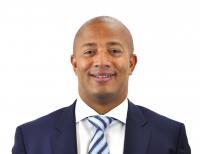
Travis Langster is vice president for AGI’s Space Situational Awareness Business Unit. In this role, Mr. Langster is responsible for strategy and business execution in delivering commercial space situational awareness solutions to commercial, civil and military organizations worldwide. Mr. Langster has more than 20 years professional experience in military and commercial satellite planning and operations, support to defense and intelligence operations, strategic planning, technical management, and systems engineering.
Mr. Langster began his aerospace career in 1992 as an engineer with General Electric Aerospace, where he focused on the launch and on-orbit operations of Air Force satellite systems. From 1994–1996, he was a systems engineer with Lockheed Martin Astro Space. During this time, he performed engineering analysis on satellite subsystems and payloads, mission planning and orbit analysis software tools.
Mr. Langster is a member of several industry associations and a Board Member of Future Space Leaders and Boys & Girls Club of America (Prince George’s Co). Mr. Langster earned a B.S. in aeronautical and astronautical engineering with a minor in mathematics from Purdue University.
-
Eric Desautels, Director, Office of Emerging Security Challenges, Bureau of Arms Control, Verification and Compliance, U.S. Department of State
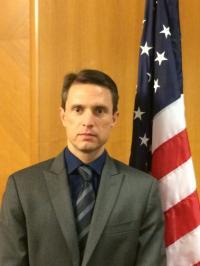
Since 2015, Eric Desautels has served as the Director of the Office of Emerging Security Challenges in the Arms Control, Verification and Compliance Bureau at the U.S. Department of State. The office is responsible for missile defense issues, outer space security cooperation and engagement, promoting transparency and confidence on cyber security issues, and Polar security issues. Prior to this, he served as the Chief of Staff in the Arms Control, Verification and Compliance Bureau. Mr. Desautels served as a senior advisor to the Under Secretary of State for Arms Control and International Security with responsibility for missile defense, space issues, interdiction issues, WMD and missile nonproliferation, sanctions, North Korea, Syria and Libya. Previously, Mr. Desautels worked in the Office of Strategic and Missile Issues in the State Department’s Bureau of Verification, Compliance and Implementation, with responsibility for missile nonproliferation issues. During that time Mr. Desautels planned, executed and eventually led the effort to verify the elimination of Libya’s missile programs according to its December 2003 commitment. Prior to that, Mr. Desautels served as a staff member on the Senate Subcommittee on International Security, Proliferation and Federal Services and worked for TASC, Inc.
-
Kevin O’Connell, Director of the Office of Space Commerce, U.S. Department of Commerce
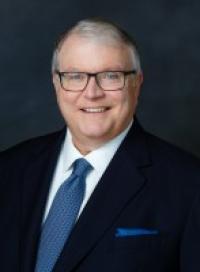
Kevin M. O’Connell is the Director of the Office of Space Commerce at the U.S. Department of Commerce. Within this position, Mr. O’Connell leads an office with responsibility as a space industry advocate within the Executive Branch of the U.S. government. Mr. O’Connell brings over 35 years of experience in the U.S. government, in research organizations, and as an entrepreneur and business leader to this position.
Mr. O’Connell has researched and written extensively on the policy, security, and global market issues related to commercialization of remote sensing. Aside from numerous articles and op-eds, he was co-author of Commercial Observation Satellites: at the Leading Edge of Global Transparency (2000). He served as the Executive Secretary and Staff Director of the NIMA Commission (1999-2000). He was a member, and later Chair, of NOAA’s federal advisory committee on remote sensing from 2002-2016.
Previously, Mr. O’Connell served as the CEO of Innovative Analytics and Training, a Washington, D.C. professional services firm focused on analysis and decision support for U.S. government and commercial clients. Among other issues, the firm focused on market trends and anticipatory/futures analysis for high-technology industries such as cyber, cloud computing, and geospatial technologies. During this time, he also served as a senior consultant to the Office of the Director of National Intelligence and as an independent advisor to the Director, National Geospatial Intelligence Agency.
Mr. O’Connell’s background also includes extensive experience in national security and intelligence matters, including assignments in the Department of Defense, Department of State, National Security Council, and the Office of the Vice President. He spent a decade conducting and managing research in these areas at the RAND Corporation, including as the first director of RAND’s Intelligence Policy Center.
Finally, Mr. O’Connell has taught a long-running course on comparative intelligence in Georgetown University’s School of Foreign Service, Security Studies Program.
-
Regina Peldszus, Senior Policy Officer, Department of Space Situational Awareness, DLR Space Administration

Regina Peldszus is a senior policy officer with DLR Space Administration, Department of Space Situational Awareness. She leads the German delegation to the Consortium implementing the European Space Surveillance & Tracking (SST) Support Framework for the European Commission, serves as Co-Chair of its Steering Committee, and handles studies at the intersection of space policy, foresight, security, and infrastructure. From 2013 to 2015 Regina was an Internal Research Fellow with ESA’s European Space Operations Centre (ESOC), Studies & Special Projects Division, focusing on resilience during critical mission phases such as LEOP. Prior to this, she contributed to various future systems and safety projects, including at ESA’s Astronaut Training Division, Special Skills & Exploration Unit. Regina holds a Ph.D. from Kingston University, London, on human systems integration and analogues for crewed exploration mission scenarios. Her interests include governance and dual use in complex systems and high reliability domains, including polar and nuclear. She is a member of the AIAA; the IFIP Working Group on Resilience, Reliability, Safety and Human Error in System Development; and the ESA/ CNES/ DLR committee for Human Dependability.
-
Dana Johnson, Director, International Outreach and Policy, Office of the Under Secretary of Defense (Research and Engineering), U.S. Department of Defense

Dr. Dana J. Johnson is the Director, International Outreach and Policy, Office of the Under Secretary of Defense (Research and Engineering) (OUSD[R&E]), U.S. Department of Defense (DoD). She serves as the principal advisor to the Under Secretary and other OUSD(R&E) senior leadership on matters concerning international engagement, defense strategy and policy, and is the single point of contact within OUSD(R&E) on international and national defense policy matters that fall within the scope of R&E. She also serves as the U.S. National Coordinator for the NATO Science and Technology Organization. She joined DoD in August 2018 from the U.S. Department of State where she was the Senior Advisor for Space Policy, Office of Emerging Security Challenges, Bureau of Arms Control, Verification and Compliance. At State she was responsible for providing analysis and expert advice on national security space policy and issues in support of the Department’s strategic and foreign policy objectives and implementing U.S. national space policy. Her activities included participation in interagency policy deliberations, and in bilateral and multilateral space security dialogues with allies and other spacefaring nations to discuss U.S. national space policy, space situational awareness information sharing, transparency and confidence-building measures, and “best practices” for orbital debris mitigation.
Prior to joining State, Dr. Johnson was the Senior Analyst for Space and Missile Defense at the Northrop Grumman Analysis Center and a national security researcher/policy analyst at the RAND Corporation. Other prior experience included Member of the Technical Staff at Rockwell International, and as a diplomatic historian at the State Department’s Office of the Historian. Dr. Johnson is also an adjunct professor at Georgetown University and George Washington University, teaching courses on space policy. She has a Ph.D. in International Relations from the University of Southern California, an M.A. in International Studies from The American University, and an A.B. in Government from the University of Redlands, and has written and contributed to numerous books, monographs, and presentations.
-
Jean-Jacques Tortora, Director, European Space Policy Institute
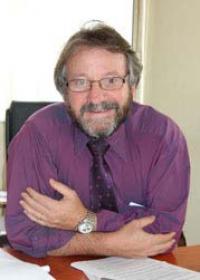
Since June 1, 2016 Jean-Jacques Tortora serves as the Director of the European Space Policy Institute. From 2007 to mid 2016 he was the Secretary General of ASD-Eurospace, which is the trade association of the European Space Industry. From 2004 to mid 2007, he was head of the French Space Agency (CNES) office in North America and the Attaché for Space and Aeronautics at the Embassy of France in Washington, D.C. Previously he was Deputy Director for Strategy and Programs, responsible for the Industrial Strategy of CNES, the French Space Agency. From 1998 to 2000, Mr. Tortora was adviser to the French Ministry of Research for Industrial Policy Funds management. From 1996 to 1998, he was appointed by Arianespace in Evry, France. From 1990 to 1996, Mr. Tortora was based in Kourou, French Guiana, as Head of Arianespace Operations Quality Department. Mr. Tortora started his career in 1984 at the French military procurement agency, DGA, as a naval weapons integration and test engineer, expert in signal processing and warships acoustic discretion.
-
Jamie M. Morin, Vice President, Defense Systems Operations, Center for Space Policy and Strategy, The Aerospace Corporation
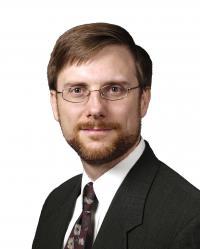
Jamie Morin is vice president of Defense Systems Operations, Defense Systems Group. He assumed this position in March 2017. In this role, Morin also serves as executive director of the Center for Space Policy and Strategy, which provides objective analysis to ensure well-informed and forward-looking space policy.
Prior to joining Aerospace, Jamie served as director of Cost Assessment and Program Evaluation (CAPE) for the Department of Defense, where he led the Department’s premier analytical organization, responsible for evaluating plans, acquisition programs, and budgets in relation to U.S. defense objectives, threats, estimated costs, and resource constraints.
Prior to his confirmation as CAPE director, Morin served for five years as the assistant secretary of the Air Force for financial management, overseeing an annual budget of more than $110 billion. Jamie also served for nearly a year as acting under secretary of the Air Force, where he was the Air Force’s Chief Management Officer, led the Air Force Space Board and Air Force Council, and guided Air Force implementation of new defense strategic guidance under the constraints of the Budget Control Act.
Previously, Morin was a member of the professional staff of the U.S. Senate Committee on the Budget, serving as the committee's lead analyst for the defense, intelligence, and foreign affairs budgets. He also served in the Office of the Under Secretary of Defense for Policy and as an economist and strategist with the firm J.E. Austin Associates. -
Doug Loverro, former U.S. Deputy Assistant Secretary of Defense for Space Policy,
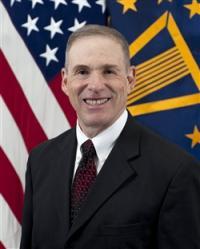
Mr. Douglas Loverro is a highly regarded senior DoD space thinker and leader. During his 30 years on active duty, he led multiple programs within DoD and the NRO including the AF’s GPS program, NRO’s Future Imagery Program, and all AF Space Control programs. He also served over 10 years as a DoD civilian in positions such as the Deputy for System Engineering at the NRO, Executive Director for the AF’s Space and Missile System Center as well as the Deputy PEO for Space, and most recently, as DoD’s Deputy Assistant Secretary of Defense for Space Policy. He left the government in 2017 after almost 45 years of service.
He holds a Master’s Degrees in Physics from the University of New Mexico, a Master’s of Political Science from Auburn University, and an MBA from the University of West Florida in addition to his BS in Chemistry from the US Air Force Academy. He was a distinguished graduate from the Air Force’s Air Command and Staff College and Squadron Officer School, and was the top graduate from DoD’s Industrial College of the Armed Forces. He is the recipient of multiple prestigious awards including the Secretary of Defense’s Medal for Outstanding Public Service, AIAA’s Durand Lecture for Public Service, the National Defense Industrial Association's (NDIA) Bob Hope Distinguished Citizen Award, the Lifetime Achievement Award from the Federation of Galaxy Explorers, the Society of Satellite Professional Engineers Stellar Award, and the Armed Forces Communicants and Electronics Association's (AFCEA) Benjamin Oliver Gold Medal for Engineering amongst many other civilian and military honors.
-
Pascal Faucher, EUSST Chairman and Security and Defence, CNES

Dr Pascal Faucher is graduated (1997) from the Ecole Nationale Supérieure de l'Aéronautique et de l'Espace (SUPAERO). He also holds a Master’s Degree (1998) and a Ph. D. in Physical Oceanography (2001) by the University Paul Sabatier, financed by the Ministry of Defence, and an Executive Master of Business Administration (2007) by ESCP Europe. After a post-doctoral position in the EU project “Marine Environment and Security for the European Area”, his experience includes 17 years of various positions at CNES headquarters as international relations adviser and programme manager. For the last 8 years, in the defence and security office, he is responsible for the following themes: space security, space situational awareness (SST, SWE, NEO) and space debris. He is currently the Chairman of the Steering Committee of the EU SST Consortium. He also acts as a French delegate to the Programme Board SSA of ESA, the Steering Group of the Inter-Agency Space Debris Coordination Committee (IADC), the Steering Committee of the Space Mission Planning Advisory Group (SMPAG), the United Nations Committee on the Peaceful Uses of Outer Space (COPUOS), actively participating to the Working Group on the Long Term Sustainability of Outer Space Activities (WG LTS). In France, he is responsible for the National Coordination Group on Space Weather (GCME). He is a member of the French Steering Group on Unidentified Aerospace Phenomena (GEIPAN).
-
Brig Gen Michel Friedling, Commander, Joint Space Command, Ministry of Defence, France
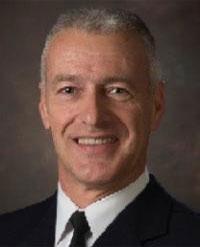
Born in 1967, Michel Friedling is graduated from the French Air Force Academy (year 1986) as a fighter pilot and obtained a degree in aeronautics engineering. He exercised different levels of command and responsibilities in operational units, flying Mirage F1 and Mirage 2000, mainly in Cambrai AFB, to include several deployments in Africa, Balkans and Middle East between 1990 and 1998. From 2009 to 2011, he took command of Saint-Dizier Air Base. The Air Base was under his command when the French Air Launched Nuclear Missile - ASMPA - was fielding as a Rafale weapon system.
From 2012 to 2013, Michel Friedling served in the Joint Military Staff, where his areas of responsibilities included successively nuclear deterrence and military strategy. Then, he became head of the Plans Department of the French Air Force (2014-2016). Among his staff responsibilities, general Friedling actively contributed to the French Defense and Security White Papers 2008 and 2013 as well as the Military Expenditure Laws 2009-2014 and 2014-2019. From Aug.2016 to Feb.2017, he was the French Senior National Representative to USAFCENT Cdr - Al Udeid, Qatar – for Operation Inherent Resolve and commanded the French Air Component allocated to the international coalition against ISIS. Promoted to Air Force Brigadier General in June 2017, he became the deputy Chief of Staff responsible for developing the Military Strategy at the French joint Staff HQ in Paris. On September 2018, Brigadier General Friedling was appointed as the Commander of the French Joint Space Command.
-
Manfred Schwiebert, German Ministry of Defence
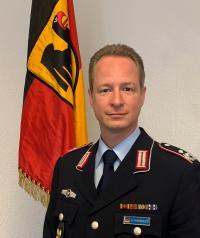
After entering Service into the Luftwaffe in 1998, LtCol Schwiebert passed Officers training, then studied at the Armed Forces University in Hamburg and completed with a Masters Degree in Business Administration.
Within the armed Forces he was trained as IT/Comms Officer, subsequently to IT-Security professional, and performed tasks at different command levels, including two deployments to ISAF (Afghanistan).
After being selected for a general staff officers career, LtCol Schwiebert completed the German (2011-2013) and French (2014-2015) general staff officer courses before serving within the Luftwaffes strategy and future development branch.
LtCol Schwiebert currently is serving within the strategy and politics department of the ministry of defence, and is the responsible desk officer for space policy and strategy. He is charged with developing and coordinating the general MoD positions on space security, embedding space security in the general MoD strategic documents. His task is to facilitate and enhance Germanys « whole of government approach » to space security from a MoD perspective as well as coordinating bilateral and multilateral partnerships on space security within MoD responsibility.
LtCol Schwiebert is 40 years old, married, has two children (3 and 5), and currently is living in the outskirts of Berlin, Germany.
-
Heidi Robinson, Director for Engagement, Office of Deputy Assistant Secretary of Defense for Space Policy, U.S. Department of Defense
Heidi Robinson is the Director for Engagement under the Deputy Assistant Secretary of Defense for Space Policy in the U.S. Department of Defense. Ms. Robinson leads Department of Defense engagement efforts across the globe to build a common understanding of the space environment, and identify opportunities for partnerships to build resilient space architectures. Prior to joining the Space Policy Office, Ms. Robinson was the Deputy Director of the Secretary of Defense Policy Resource Management Office, responsible for the budgeting and execution of a $2.1 billion annual budget, and fifteen support contracts.
Before entering the civil service, Ms. Robinson taught English in Japan for two years in Yamanashi-ken and notes that teaching at three junior high schools and two elementary schools taught her the terrors of the English language (particularly spelling!) and an appreciation for a single syllabary. As a Peace Corps Volunteer in West Africa in Cote d’Ivoire she lived in a rural village while working at a local health clinic teaching basic health education, drinking water from the well in her backyard, and learning the art of raising banana trees. Highlights of her accomplishments with the Peace Corp include assisting a village build a maternity ward thereby doubling the size of the local healthcare facilities, developing a national-level health education curriculum, and partnering with an Ivorian Coast non-governmental organization to manage a scholarship program for 35 Ivoirian junior high and high school girls.
Ms. Robinson has an MBA from St. Ambrose University, with a certificate in international management, and a BA from the University of Iowa in Global Studies and Political Science.
-
Peter Hays, Associate Director, Eisenhower Center for Space and Defense Studies

Peter L. Hays is an Adjunct Professor of Space Policy and International Affairs at George Washington University’s (GWU) Space Policy Institute and a Senior Policy Advisor with Falcon Research. He has been directly involved in helping to develop and implement major national security space policy and strategy initiatives since 2004 and also serves as a senior advisor on governance, cadre, and strategic messaging issues. Dr. Hays was presented the National Intelligence Professional Award by the Director of National Intelligence in 2014 and was chosen as the SAIC National Security Solutions Employee of the Year in 2008. He served as a Staff Augmentee at the White House Office of Science and Technology Policy in 1988 and at the National Space Council in 1990. Dr. Hays serves on the Space Security Index Governance Group, the Center for Strategic and International Studies Missile Defense Project Advisory Board, was a term member of the World Economic Forum’s Global Agenda Council on Space Security from 2010-2014, and is a member of the editorial board for Space and Defense and Astropolitics. He holds a Ph.D. from the Fletcher School and was an Honor Graduate of the USAF Academy. Dr. Hays served as an Air Force officer from 1979-2004; flew C-141 cargo planes; and taught international relations, defense policy, and space policy courses at the USAF Academy, School of Advanced Airpower Studies, and National Defense University; he now teaches the Airpower Seminars for the Marine Corps School of Advanced Warfighting and the Space and National Security and Science, Technology, and National Security Policy graduate seminars at GWU. Major publications include: Handbook of Space Security, Space and Security, and Toward a Theory of Spacepower.
-
Martina Šmuclerová, Senior Fellow, PSSI
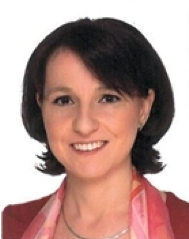
Dr. Martina Šmuclerová is a Senior Fellow at PSSI. As an international legal expert and university lecturer, she provides counsel in Public International Law, with an emphasis on Space Law and Law of International Security.
Dr. Šmuclerová has served at the Czech Ministry of Foreign Affairs as a diplomat and international lawyer and has represented the Czech Republic at the United Nations Committee for Peaceful Uses of Outer Space, the European Space Agency, the European Union and other fora. She initiated and led important international law projects such as the UN Space Debris
Compendium. Dr. Šmuclerová is a Senior Lecturer at Institut d’études politiques de Paris (SciencesPO) and teaches various courses in Public International Law, including Space law in collaboration with ESA. -
John B. Sheldon, Chairman, ThorGroup GmbH
Dr. John B. Sheldon is the Chairman and President of ThorGroup GmbH, a Swiss-headquartered publisher and consultancy group specialising in strategic space and cyberspace issues. ThorGroup GmbH is the publisher of SpaceWatch.Global.
Dr. Sheldon formerly served in the British Diplomatic Service and was a faculty member at the School of Advanced Air & Space Studies (SAASS) at Maxwell AFB, Alabama. He currently resides in the UAE where he is a strategic advisor.
-
Ajey Lele, Senior Fellow, Institute for Defence Studies and Analyses, India
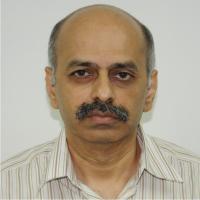
Dr Ajey Lele, is currently working as a Senior Fellow at the Institute for Defence Studies and Analyses (IDSA), New Delhi. He started his professional career as an Indian Air Force Officer and took early retirement from the services to peruse his academic interests. His specific areas of research Space Security and Strategic Technologies. He has various publications against his name and his important book publications include Strategic Technologies for the Military (Sage, 2008) and Asian Space Race: Rhetoric or Reality (Springer, 2013). Disruptive Technologies for the Militaries and Security (Springer, 2019).
-
Steve Eisenhart, Senior Vice President for Strategic and International Affairs, the Space Foundation

As head of international affairs, Steve Eisenhart is principally responsible for the Space Foundation's global strategy and relationships with international space agencies and organizations, foreign embassies and U.S. organizations involved with global space programs. He is directly responsible for the program development and integration of key Space Foundation activities including the annual Space Symposium and the New Generation Space Leaders program.
Since joining the Space Foundation in 1996, Eisenhart has had a broad range of responsibilities, serving as senior vice president of strategic communications, director of communications and public affairs and communications manager. Eisenhart was a military public affairs official and is a graduate of the United States Military Academy at West Point.
-
Ashley J. Tellis, Senior Fellow, Carnegie Endowment for International Peace

Ashley J. Tellis holds the Tata Chair for Strategic Affairs and is a senior fellow at the Carnegie Endowment for International Peace, specializing in international security and U.S. foreign and defense policy with a special focus on Asia and the Indian subcontinent.
While on assignment to the U.S. Department of State as senior adviser to the undersecretary of State for political affairs, he was intimately involved in negotiating the civil nuclear agreement with India.
Previously he was commissioned into the Foreign Service and served as senior adviser to the ambassador at the U.S. Embassy in New Delhi. He also served on the National Security Council staff as special assistant to President George W. Bush and senior director for strategic planning and Southwest Asia. Prior to his government service, Tellis was senior policy analyst at the RAND Corporation and professor of policy analysis at the RAND Graduate School.
He is a counselor at the National Bureau of Asian Research, the Research Director of its Strategic Asia program and co-editor of the program’s fifteen most recent annual volumes, including this year’s Strategic Asia 2019: China’s Expanding Strategic Ambitions. He is the author of India’s Emerging Nuclear Posture (2001) and co-author of Interpreting China’s Grand Strategy: Past, Present, and Future (2000). In addition to numerous Carnegie and RAND reports, his academic publications have appeared in many edited volumes and journals.
Tellis serves on the Chief of Naval Operations Executive Panel. He is a member of several professional organizations related to defense and international studies including the Council on Foreign Relations, the International Institute of Strategic Studies, the United States Naval Institute, and the Navy League of the United States.
He earned his PhD in political science from the University of Chicago. He also holds an MA in political science from the University of Chicago and both BA and MA degrees in economics from the University of Bombay.
-
Kevin Mcloughlin, Head of Space Security, UK Space Agency
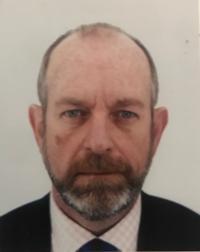
Kevin Mcloughlin is the Head of Space Security Policy in the UK Space Agency, responsible for providing the tools and environment to enable assured access to, through and from space for the civil space user and operator community. The role involves understanding and supporting civil and critical national infrastructure dependency on space; supporting the development of space security and protection capabilities such as Space Weather monitoring, Space Situational Awareness, Surveillance and Tracking and international norms.
Previously Kevin has worked in the defence and security community for a number of years and most recently was engaged in the development of assurance and risk management of cross cutting technologies.
-
Václav Kobera, Director, Intelligent Transport Systems, Space Activities and R&D Department, Ministry of Transport of the Czech Republic
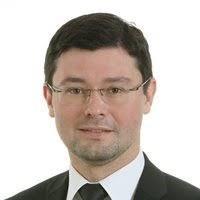
Dr. Václav Kobera is Director of Intelligent Transport Systems, Space Activities and R&D and Innovation Department at the Ministry of Transport of the Czech Republic. He joined the Ministry of Transport in 2004 and served in various functions, including in the Department of Strategy and Department of Security Systems. Mr. Kobera has a Doctor of Law degree (J.D.) from the Charles University, Faculty of Law.
-
Tanja E. Zegers, Policy Officer, DG for Internal Market Industry, Entrepreneurship and SME – DG GROW, European Commission

Tanja Zegers joined the European Commission in 2011 where she worked on challenging files such as the preparation of Horizon 2020, Galileo, and in general space & security related files. She is currently leading the GOVSATCOM initiative.
Prior to joining the Commission she worked for ESA and the Dutch administration managing space science programmes. She has a PhD in geosciences and worked as a university researcher and lecturer in The Netherlands, Australia and the United States.
-
Agnieszka Lukaszczyk, Senior Director, European Affairs, Planet Labs, Inc.

Agnieszka Lukaszczyk is a Senior Director for European Affairs at Planet. A Polish/American national, has worked at the European Commission, Directorate General for Internal Market, Industry, Entrepreneurship and SMEs, Space Data for Societal Challenges and Growth Unit. She also worked at the Directorate General for Enterprise and Industry, Space Policy and Research Unit. Before she joined the Commission, Agnieszka was the Brussels Office Director for the Secure World Foundation. In addition, she is the former Chairperson and the former Executive Director of the Space Generation Advisory Council in Support of the United Nations Programme on Space Applications. Agnieszka also worked at the European Space Policy Institute as a research fellow. Agnieszka serves as the Vice President - Europe for the World Space Week And Sits on the Board Of Directors for the Women in Aerospace-Europe. She is currently pursuing a PhD in Space Security at the Polish Defence Academy. She holds a Master's degree from the Warsaw School of Economics in Management of Space in New Economies and a Master's degree from the American University School of International Service in International Politics plus a Bachelor degree in Political Science from the University of Tennessee. She also studied at the Universite Catholique de Louvain in Brussels, Belgium; the Jagiellonian University in Krakow, Poland and the World Trade Institute in Berne, Switzerland. She gained professional experience at the Political Section of the Polish Embassy in Washington DC, American Electronics Association in Brussels, European Department of the Polish Senate in Warsaw and the Warsaw Business Journal.
-
Masahiro Atsumi, Vice President & Senior General Manager Space Systems Division, Mitsubishi Heavy Industries

Masahiro Atsumi is the Vice President and Senior General Manager of Space Systems Division in Mitsubishi Heavy Industries, a position which he has held since April 2019. Prior to this role, he served as the Senior Chief Engineer, and since 2016 as the Senior General Manager at the Space Systems division of Integrated Defense & Space Systems within the present company.
-
Hiroshi Koyama, Fellow, Electronic Systems Group, Mitsubishi Electric Corporation

In March 1987, he had received Ph.D., Faculty of Engineering, at University of Tokyo of Japan and in April of 1987, he had joined in MELCO and started his career as Chief Engineer for Rendezvous and Docking System of Engineering Satellite-VII (ETS-VII) & H-II Transfer Vehicle (HTV) in Kamakura Works.
From October of 2014, he was appointed to CTO including space and defense aspects of Electronic Systems Group and assigned to present position from April of 2015.
-
Bhavya Lal, Policy Analyst, IDA Science and Technology Policy Institute

Bhavya Lal leads strategy, technology assessment, and policy studies and analyses at the IDA Science and Technology Policy Institute (STPI) for the White House Office of Science and Technology Policy (OSTP), the National Space Council, and Federal space-oriented organizations including NASA, the Department of Defense and the Intelligence Community. She has applied her expertise in engineering systems and innovation theory and practice to topics in space, with particular focus on commercial activities, especially related to space nuclear power, on-orbit servicing assembly and manufacturing, small satellites, human exploration, and space science.
She is currently serving on a National Academy of Science (NAS) committee on assessing the relative merits of infrared vs. visual observations by a space-based telescope to detect and characterize near Earth objects. She recently co-chaired a NAS Committee on the State of U.S. Electronic Parts Radiation Testing Infrastructure for Space Applications, and was previously vice-chair of the NAS committee on Achieving Science Goals with CubeSats, and member of the committee on 3D Printing in Space. She is serving a second term on the NOAA Advisory Committee on Commercial Remote Sensing (ACCRES), and participated on the UN Committee on Space Research (COSPAR) to develop an international scientific roadmap for small satellites. She co-organizes a seminar series on space history and policy with the Smithsonian National Air and Space Museum. She co-founded and is co-chair of the policy track of the annual conference of space nuclear power.
Before joining STPI, Dr. Lal was president of C-STPS LLC, a science and technology policy research and consulting firm. Prior to that, she was the Director of the Center for Science and Technology Policy Studies at Abt Associates. Dr. Lal holds B.S. and M.S. degrees in nuclear engineering from the Massachusetts Institute of Technology (MIT), a second M.S. from MIT’s Technology and Policy Program, and a Ph.D. in Public Policy and Public Administration from George Washington University.
-
Cassandra Steer, Interim Executive Director, Women in International Security - Canada

Dr. Cassandra Steer is Executive Director of Women in International Security-Canada, and an independent space security consultant, currently working with Space Strategies Consulting Ltd (SSCL). She specialises in the application of the law of armed conflict and use of force in outer space, and issues of space security in general. Dr. Steer is an Associate Expert on the Woomera Manual on the International Law of Military Activities in Outer Space, and a member of the International Institute of Space Law. Her former positions include Acting Executive Director of the Center for Ethics and the Rule of Law at the University of Pennsylvania, Executive Director of the McGill Centre for Research in Air and Space Law, and an academic at McGill University and the University of Amsterdam. She is author of several articles on international criminal law, space law, the law of armed conflict, as well as a book titled "Translating Guilt: Identifying Leadership Liability for Mass Atrocity Crimes".
Auspices













